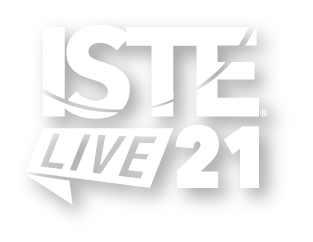

Alternate-Reality Game Design: Using Tech to Create Immersive Learning Experiences |
Listen and learn : Lecture
Andrew Easton
Alternate-reality games take game-based learning to another level! Explore six design tips and 10 tech tools you can use to create an immersive, multimedia experience that extends beyond the four walls of the classroom and blurs the lines of the game-as-learning experience.
| Audience: | Teachers, Coaches, Professional developers |
| Skill level: | Beginner |
| Attendee devices: | Devices useful |
| Attendee device specification: | Smartphone: Android, iOS, Windows Laptop: Chromebook, Mac, PC Tablet: Android, iOS, Windows |
| Participant accounts, software and other materials: | Attendees will be given access to resources via Bitly links that they can then access on-demand through any mobile device. |
| Topic: | Games for learning & gamification |
| Grade level: | 6-12 |
| Subject area: | Language arts, Not applicable |
| ISTE Standards: | For Educators: Learner
|
Participants will engage one another in conversations about personalized practices as a check for understanding after learning about the model example that this learning experience was built upon.
Participants will be able to distinguish the differences between gamification, game-based learning, and alternate reality game design.
Participants will understand the guiding principles that drive alternate reality game design.
Participants will learn about tech tools that can be utilized to create these immersive and purposeful learning experiences.
The session will explore a range of models, from personalization to instructional video production to the broad umbrella phrasing of games in education to the nuances and driving principles of creating an alternate reality game experience. This session will look at how the following programs can contribute to the development of an alternate reality unit: Google Email, Google Slides, Google Docs, Google Sites, Google Forms, Google Hangouts, Flipgrid, iMovie, Animoto, Twitter, Booksnaps, and Prisma.
This presentation is designed for a 60-minute timeframe. The first 15-minutes is dedicated to laying down the groundwork and conveying the details and nuances of the personalized learning model that this unit was built upon. At the end of that first 15-minutes, participants will take part in a think, pair, share that will open up a dialogue about this initial session while also offering the opportunity for questions. The next 10-15 minutes (depending upon questions) is allocated to exploring my personal backstory with learning how to create video content for my courses. That backstory takes only a few minutes before the session shares out the process for instructional video production and the tech needed to film and edit these pieces. This information, which is helpful in its own right, is relevant to this topic as creating a video to convey the narrative is one of the key components for developing an immersive ARG. The final 30 minutes of the session is allocated to sharing an example of an ARG implemented in the classroom. As that classroom example is shared, participants are consistently collecting explicitly conveyed design points and tech tips that will equip them with the perspective and tools to do this on their own in their own subject area.
My work with personalized learning is grounded in the principles driven by Dr. Jim Rickabaugh, author of Tapping the Power of Personalized Learning, who is both a colleague and friend. Additionally, I am well acquainted with the work of Barbra Bray and Kathleen McClaskey, co-authors of How to Personalize Learning. Kathleen McClaskey and I co-presented on the topic of personalized learning + UDL at the iNacol conference in 2018. My research into instructional video production is largely an amalgamation of numerous personal experiences and research done in this area. Professionally, I have had numerous conversations with Apple Distinguished Educator Don Goble about my instructional video practices and development. Finally, I have gleaned a great deal from both Michael Matera, author of Explore Like a Pirate, and Paul Darvasi, games in education blogger (Ludiclearning.org) and presenter. Paul's work was highly influential to my own progress in this particular area.

Andrew serves Nebraska as a statewide Digital Learning Coordinator with the ESUCC. He is also a speaker, podcast host, and education consultant on topics such as personalized learning, ed-tech, learning space design, and games in education. In 2020, Andrew was recognized by the ISTE Literacy Network, receiving a Spotlight Literacy Practices Award. Andrew is currently authoring a book for Dave Burgess Consulting Inc. on personalization, scheduled for release in 2021.